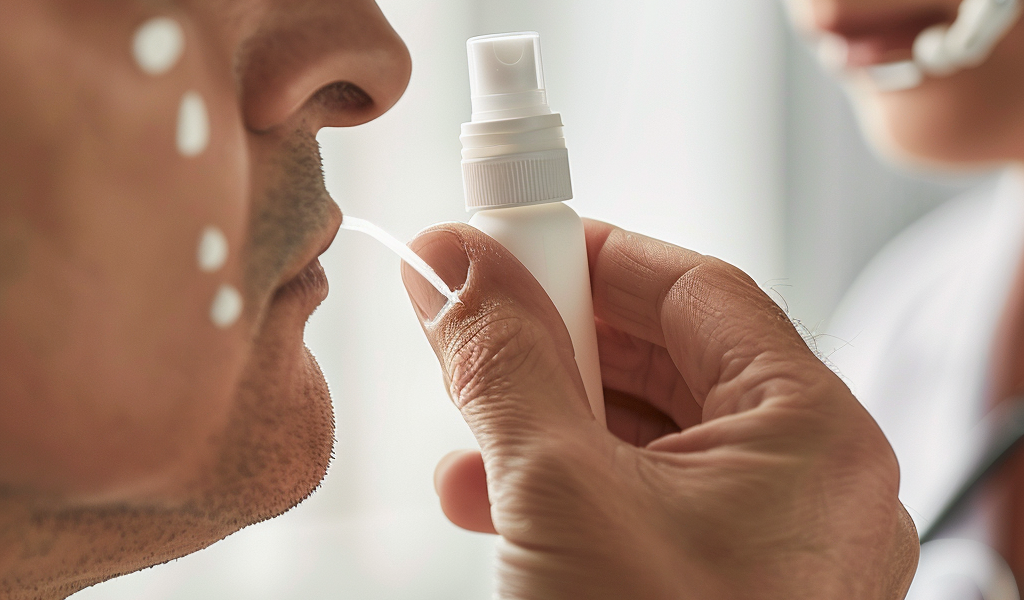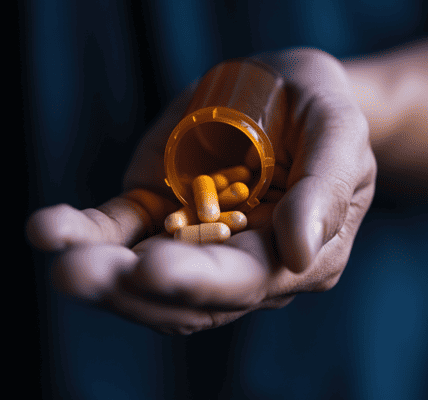A groundbreaking development in the fight against respiratory infections has emerged from researchers at Brigham and Women’s Hospital (BWH), affiliated with Harvard University. A new drug-free nasal spray has shown promising results in preclinical studies, demonstrating the potential to block and neutralize a wide array of viruses and bacteria, including those responsible for COVID-19, influenza, and pneumonia.
This innovative nasal spray creates a gel-like matrix that coats the nasal cavity, effectively capturing large respiratory droplets that may contain harmful pathogens. By acting as a physical barrier, the spray not only prevents the entry of these germs but also neutralizes them, potentially offering a significant advantage in reducing the incidence of respiratory diseases.
Published in the journal Advanced Materials, the research indicates that the nasal spray could provide nearly 100% protection from respiratory infections based on the results of preclinical studies. If proven effective in human trials, this product could play a crucial role in enhancing public health and safeguarding communities against emerging respiratory threats.
Respiratory infections are primarily transmitted through the nasal passages. When an individual contracts an airborne illness, such as the flu or COVID-19, they exhale tiny droplets containing the virus. These droplets can be inhaled by healthy individuals nearby, leading to the spread of infection. The pathogens then attach to the cells lining the nasal cavity, where they can replicate and be released back into the environment through actions like sneezing, coughing, or even normal breathing.
While vaccines have been developed to combat these viruses, they are not foolproof. Vaccinated individuals can still contract infections and inadvertently transmit them to others. Similarly, while masks can provide some level of protection, they are not always used correctly, and their effectiveness can be compromised by leaks or improper fit.
Co-senior author Jeffrey Karp, a distinguished chair in anesthesiology at BWH, emphasized the ongoing threat posed by respiratory pathogens, stating, “The COVID pandemic showed us what respiratory pathogens can do to humanity in a very short time. That threat hasn’t gone away. Not only do we have the flu to deal with seasonally, but we now have COVID, too.”
The development of this nasal spray, referred to as Pathogen Capture and Neutralizing Spray (PCANS), involved meticulous research and ingredient selection. Co-senior author Nitin Joshi, an assistant professor of anesthesiology at BWH, explained, “The spray was developed using ingredients from the FDA’s Inactive Ingredient Database (IID), which have been previously used in approved nasal sprays, or from the Generally Recognized as Safe (GRAS) list of the FDA.” This careful selection process ensures that the components of the spray are safe for use and have a history of approval in similar applications.
The potential implications of this nasal spray are significant, especially in light of recent global health challenges. As respiratory infections continue to pose a risk, having additional preventive measures could help mitigate outbreaks and protect vulnerable populations. The research team is hopeful that further validation in human trials will confirm the efficacy of the spray, paving the way for its eventual availability to the public.
This new approach to respiratory health not only highlights the importance of innovative solutions in the face of ongoing health crises but also underscores the necessity of continuous research and development in the field of infectious diseases. As scientists work diligently to combat respiratory illnesses, the introduction of such a protective nasal spray could mark a significant advancement in public health strategies.
In summary, the emergence of a drug-free nasal spray that effectively captures and neutralizes respiratory pathogens presents a promising new tool in the ongoing battle against infectious diseases. With further research and validation, this innovation could provide an essential layer of protection for individuals and communities alike.





